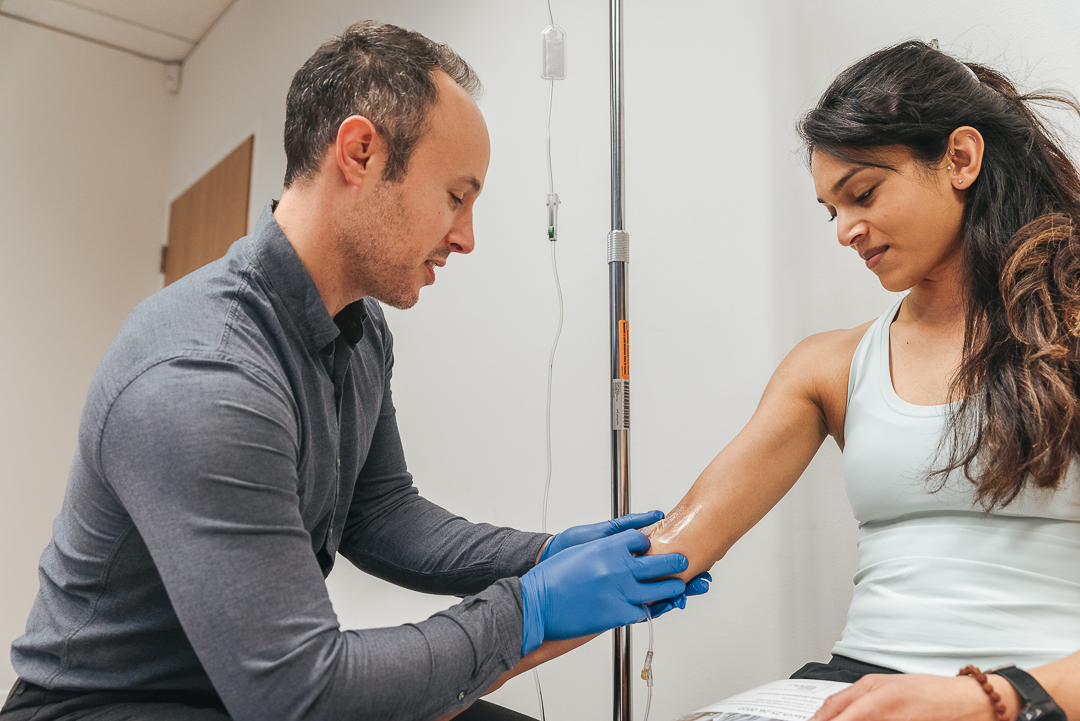Introduction
You may have seen people getting IV therapy and wondered what it was all about. IV therapy is the administration of vitamins and minerals through an IV, or intravenous, drip. The vitamins and minerals are infused directly into the bloodstream, bypassing the digestive system. This allows for higher absorption of the nutrients than if they were taken orally.
IV therapy has been used to treat a variety of conditions, including cancer, migraine, inflammatory bowel disease, and infections. Proponents of IV therapy claim that it can boost energy levels, improve immunity, and help the body recover from illness and injury more quickly. But does IV therapy really work? Let’s take a closer look.

How Does IV Therapy Work?
IV therapy is thought to work by providing high concentrations of nutrients that can be rapidly absorbed by the body. When these nutrients are infused directly into the bloodstream, they bypass the digestive system, which can sometimes limit absorption when taking oral supplements.
The intravenous route also allows for higher doses of nutrients than would be possible with oral supplementation. For example, when taking a vitamin C supplement orally, only a small percentage of it is actually absorbed by the body. However, when given as an IV infusion, concentrations of vitamin C in the blood can increase to levels that are not achievable through oral supplementation alone.
What Are The Benefits Of IV Therapy?
IV therapy is claimed to offer a number of benefits, including improved immunity, increased energy levels, and faster recovery from illness and injury.
Dehydration
One of the most well-known benefits of IV therapy is its ability to treat or prevent dehydration. When you’re dehydrated, your body doesn’t have enough water to function properly. This can lead to symptoms like fatigue, headache, dry skin, and dizziness.
Dehydration can also cause more serious problems like heat stroke and kidney failure. IV fluids can help rehydrate your body and relieve some of these symptoms.
Migraine
Another common use for IV therapy is to treat migraine headaches. Migraines are a type of headache that is often accompanied by nausea, vomiting, and sensitivity to light and sound. A study published in 2012 found that patients who received magnesium sulfate through an IV had fewer migraines than those who received placebo treatments .

Cancer
IV therapy is also sometimes used as a treatment for cancer . While there is no cure for cancer yet , research has shown that high doses of certain vitamins and minerals may help improve quality of life for cancer patients and even improve survival rates. Vitamin C, for example, has been shown to kill cancer cells in test tubes . It’s also been shown to reduce fatigue, pain, nausea, and vomiting in cancer patients. Other vitamins and minerals that have been studied include selenium, CoQ10, curcumin, B vitamins, and vitamin D . However, more research is needed to confirm whether or not these nutrient infusions are effective treatments for cancer.

Immune Booster
IV therapy can also be used to boost immunity. If you frequently get sick or feel run down, IV therapy can help give your immune system a much-needed boost. Vitamins C and D are both essential for immune health. Vitamin C is a powerful antioxidant that helps protect cells from damage. Vitamin D helps regulate the immune system and has been shown to reduce the risk of respiratory infections.
Are There Any Side Effects?
Most people tolerate IV therapy well and do not experience any side effects. However, some people may experience mild side effects such as bruising or soreness at the injection site. more serious side effects are rare but could include allergic reactions or blood clots.
Conclusion
If you’re considering trying IV therapy, it’s important to speak with your doctor first. IV therapy is not without risks; for example, it can lead to dehydration or an infection if not done properly. That being said, there is some promising research to suggest that IV therapy may be an effective treatment option for certain conditions. If you and your doctor decide that IV therapy is right for you, be sure to choose a reputable provider like myself who has experience administering treatments.

